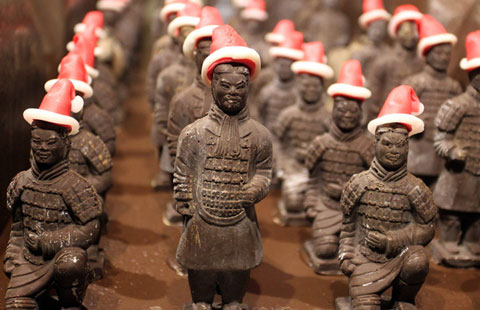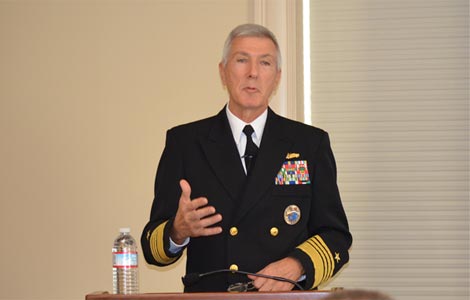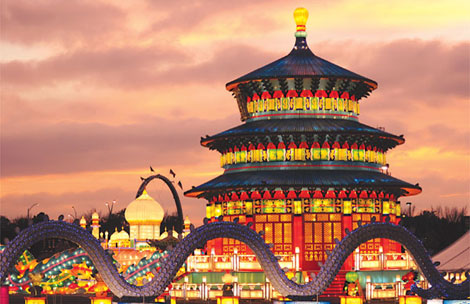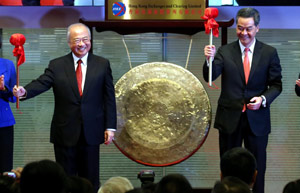New policy seen as boom to business
Updated: 2014-11-21 12:06
By Li Jing in Beijing(China Daily USA)
|
|||||||||
Five passports, 37 US visas, about three to four visits a year
Since 1993, Li Qiusheng, a Tianjin-based clockmaker, has traveled frequently to the US for marketing.
"In 1996, I set up an office in the United States and employed three Americans for sales work," said Li, 61. "However, when the business was about to boom, I had to close the office because I failed to get a timely visa."
Li had forgotten to prepare a piece of paperwork that the embassy required. "As I had to document every year, it was easy to make careless mistakes," Li recalled.
Li's businesses in the United States didn't get back to normal until his son graduated and restarted it three years later.
His classical clock business now includes exports of replicas of classic designs from China to America, as well as collections of antique clocks in the US, where Li said he recently got a century-old French clock at an auction.
For Li, the new visa policy will greatly reduce "the hassle factors."
"It will make it easier for Chinese businesses and investors to get involved in US projects," he said.
In Hong Kong, a cross-border investment lawyer said the new policy means closer commercial ties inevitably will follow. "Once you have more people traveling in and out of both countries for longer periods of time," said Simon Chan, a partner with the law firm Dorsey and Whitney.
In providing easier travel to the US, Chan said that extended visas will likely "drive up private-equity investments at both a personal and institutional level".
He said the biggest bump might be seen in increased commercial real estate purchases by Chinese investors. "We are already seeing mega deals being negotiated and made in New York, L.A. and Chicago."
The point is echoed by the Sino-American expert Zhu Feng of Peking University, who said some housing markets will benefit greatly from the China house-hunter niche. He singled out California and New York City, where there are large Chinese communities, good schools and attractive, brag-worthy real estate.
According to Jones Lang LaSalle, the value of commercial properties purchased by the Chinese was $5.4 billion by the second half of this year. That figure is expected to double to a little over $10 billion before the year ends. In 2013, Chinese buyers spent $7.6 billion on commercial real estate, up from $3.3 billion in 2012.
China is the US's fastest-growing export market. Investment from China in the US has increased sixfold in the past five years.
"All these things mean jobs for the American people; and deepening these ties will mean more jobs and opportunity for both of our peoples," President Barack Obama said in a speech to world leaders attending the Asian-Pacific Economic Cooperation summit (APEC) in Beijing last week.
The US processes more than 1.95 million non-immigrant visas in China each year, 14 percent of its global total and more than in any other country, according to the US State department.
As for Li the clockmaker, he has just made an application for an extended US visa.
"I hope to be the first group of Chinese to benefit from the extended visa," he said.
lijing2009@chinadaily.com.cn

 Chocolate warriors with Christmassy characteristics
Chocolate warriors with Christmassy characteristics
 Trending: Panda beating video triggers outrage
Trending: Panda beating video triggers outrage
 Culture Insider: 7 things you may not know about Minor Snow
Culture Insider: 7 things you may not know about Minor Snow
 Practitioners adapt old operas to fit modern lifestyles, tastes
Practitioners adapt old operas to fit modern lifestyles, tastes
 The future of the Asian Pacific
The future of the Asian Pacific
 Early start to family life
Early start to family life
 Chinese lantern festival is coming to California
Chinese lantern festival is coming to California
 Across America over the week (Nov 14- Nov 20)
Across America over the week (Nov 14- Nov 20)
Most Viewed
Editor's Picks

|

|

|

|

|

|
Today's Top News
China's interest rates cut to bolster growth
Strong earthquake hits SW China
Banner year for US, NYC real estate investment: Panel
Obama takes executive action on immigration
China's central bank cuts interest rates
Chinese lantern festival is coming to California
Cookstove technology key in fighting pollution
Chinese supercomputer still top-ranked
US Weekly

|

|








